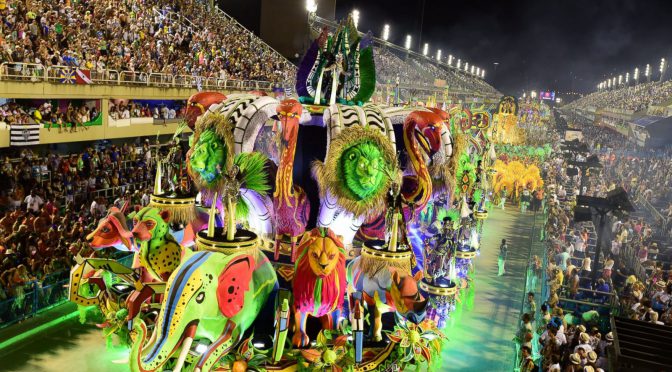The Fantasy Genre has long been dominated by the religions and customs of countries touched on by the Crusades. While this makes sense, with the familiar image of a knight wandering foreign lands being key to the genre itself, there has been stagnation in recent times. As such, I’ve taken it upon myself to look into the cultures of the world and find fascinating details about other mythologies often overlooked by the genre we so love, going on a bit of a tour of world mythologies.
The cultures of Europe and Africa have had some interactions with each other in the past, especially along the Mediterranean coasts. Egyptian mythology influenced Greek, as did Amazigh, and the same could be said the other way around. Many have known of the influences of Christianity on modern day Voudou and related groups. But that blend is rarely so complete that it would be difficult to know the origins of which belief came from what group. Though sometimes the details get lost to history, like with Poseidon being part of the mythology of the Amazigh long before being introduced to the Greeks, there is still some evidence from long ago that makes it possible to separate the two.
But what happens when that blend is a lot more complete and a mythology starts to form after the blending?
Behold, the beauty of the mythology that is Brazil. Having been settled by the Portuguese during the colonial period, Brazil’s culture was heavily influenced from not one direction but rather three fully unique sources. The first, of course, was the indigenous people of the region, the Tupians in particular – a group defined by their language group, Tupian, which includes 70 different dialects. Then, as the Portuguese arrived, they did what Europeans generally do and tried to convert the country, introducing a whole new language and their culture. And, as the Portuguese arrived, they also brought along slaves, as the Europeans tended to do at the time, and introduced the unique flavors of the Western African cultures covered in earlier entries of this series.
The result was a wonderfully complex blend of the cultures of three different continents playing off of each other and creating something new. While the origins of some ideas are easy to identify, most are a gestalt which has grown greater than the sum of its parts. A creature shaped like something from the Amazon could behave like an African deity, be associated with a Christian concept, and have a name based on the Portuguese translation of a Tupian word.
So, while it would be impossible to cover the whole of such a rich culture in the space of a lowly blog like mine, it’s a time to give a brief look into the world of… Continue reading Mythology World Tour: Brazil


